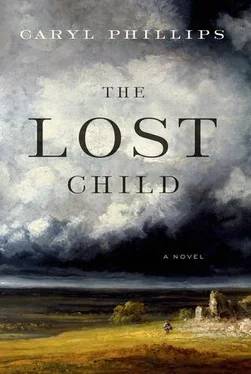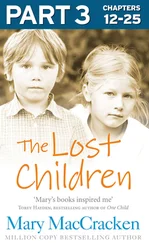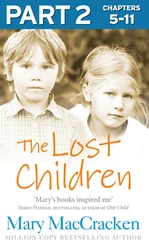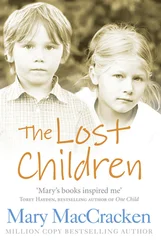“Well,” she said, breaking off a piece of Dundee cake with her fingers. “Is that all you’ve got to say to me?”
He wanted to smack the girl, but it was too late for this. As usual, her attitude was entirely regrettable, but he knew enough about young people to understand that he had to continue to exude assertiveness and control, and so he climbed to his feet.
“So it would appear, Monica. So it would appear. I’ve no desire to fight with you.” He paused, and for a moment their eyes locked. “Listen, I’d best be off before the traffic starts building. And Monica, I’m sorry.”
His daughter heard his bumbling apology, but she said nothing and simply unhooked his overcoat, then his hat, and handed them to him. He looked at his child, but for him to say anything further would involve stepping too far outside of himself, and so he simply offered her a weak smile. Then he caught a glimpse of himself in the small mirror on the wall to the side of the door and realized that this afternoon’s effort had put five years on him. As she picked up a small bunch of keys, Monica broke off another portion of cake.
“I’ll show you the way out of the college.”
They crossed the quiet, shadowy quadrangle and then traipsed their way through a narrow archway and out into the sunlit brightness of the front quad, where two clusters of students shared the lawn, playing separate games of croquet in neighbourly proximity to each other. As they walked together, he felt a momentary surge of panic, knowing that this final act of his performance would be improvised. They stepped through the huge wooden door and out onto the street, and then he stopped and gently held Monica’s arm through a handful of grey jumper.
“You will keep in touch, won’t you?” His daughter looked at him but said nothing.
He let go of Monica’s arm and fished in his jacket pocket for his car keys.
“I’m parked just down this road and around the corner. No need for you to trouble yourself. I can find my own way.” Why, he asked himself, couldn’t he add “love”? I can find my own way, love. But he knew that it wouldn’t do to confuse her. Once he turned the corner and passed out of sight, he took a handkerchief from his pocket and discreetly blew his nose and then dabbed at his eyes. Mission accomplished.
* * *
Soon after Monica’s birth, his wife had dropped a few broad hints that she wouldn’t mind having a second child, but Ronald Johnson had determined that one would suffice. After all, there was a war on, and it was incumbent on all English families to make sacrifices of some kind. Monica had arrived in 1937, when it looked as though Chamberlain, whom Ronald greatly admired, was well on the way to securing some semblance of peace. Three years later, any mention of his affection for the former prime minister caused him to go beetroot red, and so his wife knew full well to avoid this topic. By 1940 the whole country was hunkered down and silently preparing for the worst, so he thought it unnecessary to engage with Mrs. Johnson on the question of a second child, and the idea was quietly dropped.
A teenage bout of pneumonia had left him with a shadow on his chest, and so he was deemed unfit for active duty and therefore able to continue with his career teaching geography to boys, whose only real interest in their studies seemed to relate to troop movements in various corners of the globe. At a time when the duties and obligations of war were causing many families to temporarily break apart and accustom themselves to the novelty of female leadership, Ronald Johnson was able to continue to exercise a benevolent patriarchal authority over his household and therefore take a keen interest in the development of his daughter.
From the moment she was born he had tried to please Monica. During the day he often found himself ignoring the rows of pupils ranged before him, preferring instead to stare out the window and ponder what trinket or sweets he might bring back for her that evening. Even in the most austere of times there were shopkeepers who knew how to track down scarce commodities, and he had forged a good relationship with one or two of them who seemed to be able to get their grubby paws on chocolate or licorice. As soon as he reached home and pushed his way through the door, there she would be staring up at him and patiently waiting for her goody. When she was a little older, and her school held a VE Day pageant, it was Monica who wore the Union Jack robe and tinsel crown and proudly held aloft the placard proclaiming “Peace,” and he almost burst with pride when he read the letter from Monica’s headmistress that confirmed that his daughter was one of the three “specially talented” girls chosen for music lessons.
Ronald Johnson had carefully mapped out a postwar career path for himself that would accommodate only fee-paying or grammar schools, for he was sure that his spirit would wilt in the barren world of the new secondary modern schools that the local council, in keeping with government guidelines, was rapidly establishing to accommodate those who had failed the Eleven plus examination. However, despite his achieving some success and securing a junior master’s position at the local Queen Elizabeth Grammar School, money remained tight. Nevertheless, when Monica was ten, he declared that this was the right time for the family to buy their first house, a small terraced affair in a better part of town, but he wasn’t prepared to put Monica’s future, to say nothing of her happiness, at stake. This being the case, he funded her piano lessons with extra money that he earned giving Saturday-morning instruction to the twin Shadwell boys, who he knew stood absolutely no chance of passing the Eleven plus. Monica, on the other hand, sailed through her examination, and she began to win certificates and the odd trophy at music festivals all over the north of England. The mantelpiece and sideboard in the new living room supported a sequence of expensively framed photographs of his daughter flowering into a beautiful girl, and late at night, after everyone had gone to bed, he liked to sit alone and marvel at the images that showed off her poise and self-belief to best advantage, although occasionally he did find himself irritated by the seemingly nonchalant path that his daughter seemed to be steering between his own indulgence and his wife’s silent pride.
“Daddy,” she had once asked him, “are you happy?” She was barely twelve at the time and was balanced carefully on the arm of the settee with her legs dangling over the side. The question disturbed him, for he didn’t know just what it was that his daughter was seeing that prompted her to ask such a thing, but he simply swirled the ice in his drink so the cubes tinkled together like the percussion section of a band. Then he leaned over and snaked his hand around her midriff and tried to tickle Monica, but she pulled away, and the unanswered question hung in the air between them.
His daughter seemed to take it in her stride that an Oxford college had accepted her without any stipulation that she achieve a particular set of grades. It had been her own idea that in addition to applying to redbrick universities she try both Oxford and Cambridge, but her headmistress had called him in and warned him that the school had no history with either university. She also reminded him that familial ties appeared to count at both places, and Monica would not be able to point to any relative who had attended either institution. Nevertheless, he let the headmistress know that he fully supported his single-minded daughter in her application, although he never mentioned anything to Monica about going into the school. On the morning she received the letter announcing her acceptance, Monica reluctantly shared the news with her parents over tea and toast and then trotted off to school as though this were just an ordinary day. Her father, on the other hand, drove to work with his briefcase deftly balanced across his knees, and he utilized the whole journey planning how he might break his news to the staff room in a casual manner so it wouldn’t come over as though he’d joined up with the boastful brigade. However, by the time he began the long walk down the corridor towards the staff room he realized that it was going to be impossible to contain himself. When Miss Eccles, the French mistress, asked him if he would like a cup of instant coffee, he just blurted it out: “Our Monica’s going to Oxford.” He immediately felt his face colouring up, for after all, he spent most of his working day trying to exhort boys to speak grammatically correct English, and now listen to him. “Our Monica.”
Читать дальше












